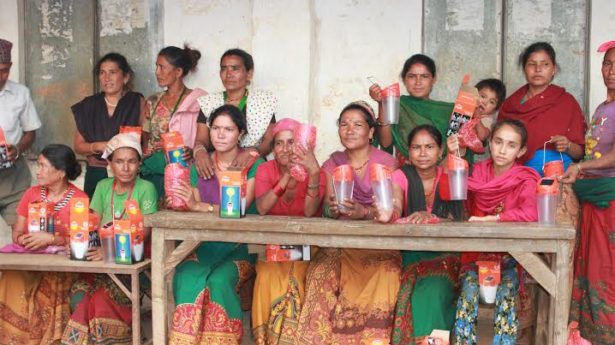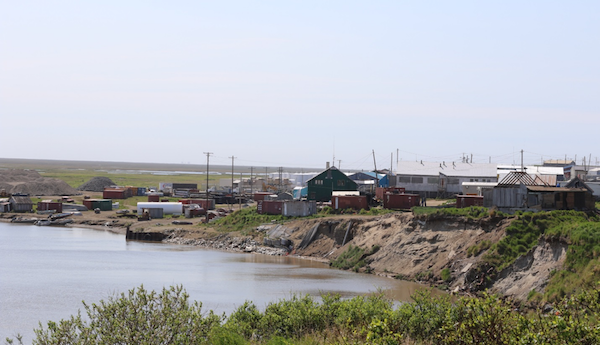The Unitarian Universalist Service Committee advances human rights through grassroots collaborations.
Everything That Counts: Learning from Our Nepal Partners (Part II)
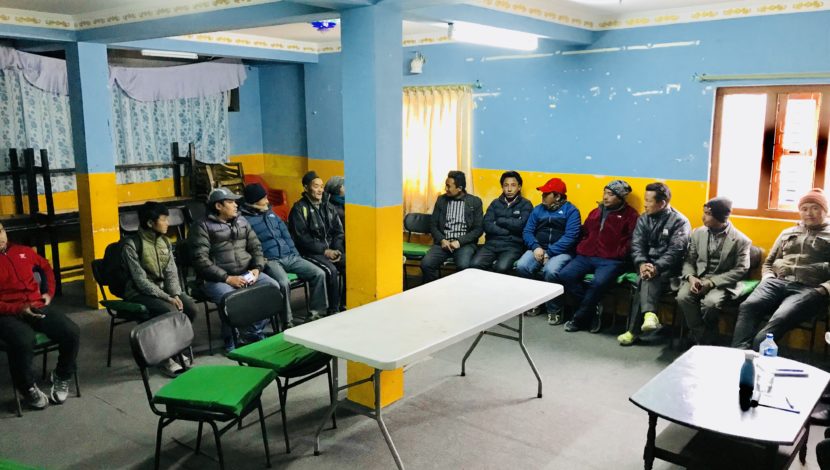
By on March 19, 2018
Protecting and Advancing Indigenous Rights in the Face of Industrial Development
On our recent trip to Nepal, my colleague, Michael, and I also met with representatives of several indigenous communities supported by UUSC’s partner the Lawyer’s Association for Human Rights of Nepali Indigenous Peoples (LAHURNIP). After a very bumpy, six-hour ride we found ourselves seated among a group of indigenous community leaders in Dhunche, a remote village in Nepal’s Rasuwa district.
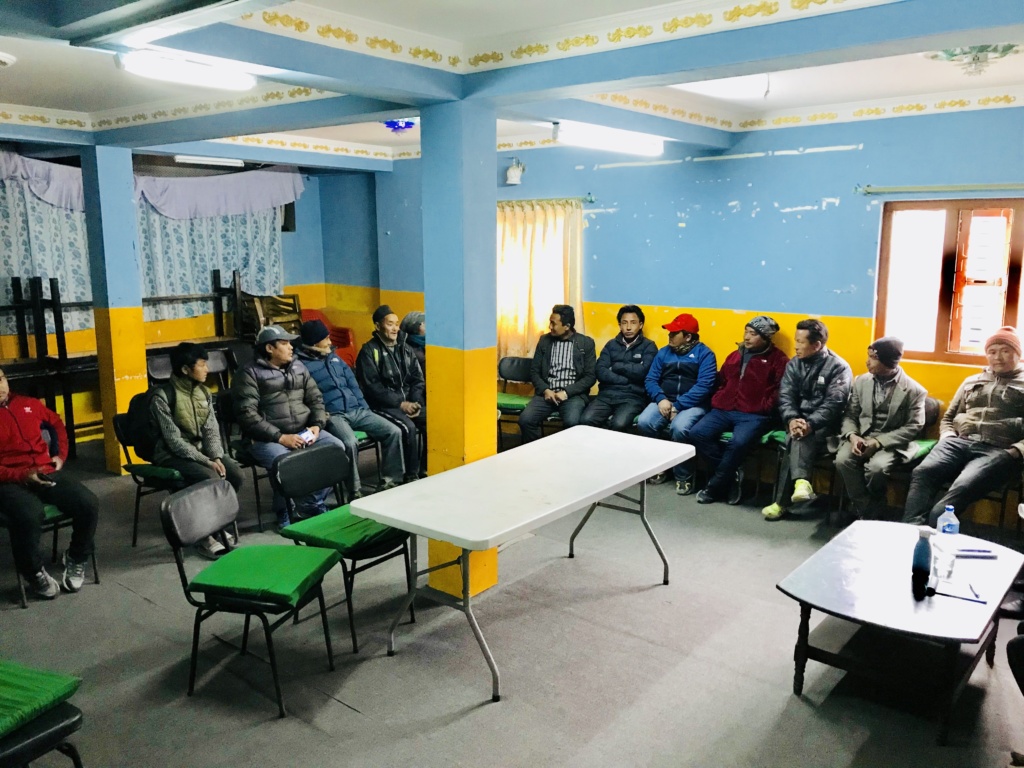
Many houses in Dhunche were lost to the earthquakes, but it quickly became clear to us that perhaps even greater damage may come from several development projects rapidly unfolding throughout the region. The national government and foreign investors are moving forward on development projects, displacing entire communities, destroying forests, and exacerbating issues of water scarcity and isolation. An Indigenous People’s Human Rights Defender (IPHRD) explained to us that landslides, which at first glance appear to be earthquake damage, are actually the result of road construction and blasting related to nearby hydropower and highway projects planned to connect Kathmandu to the China-Nepal border.
“What is this project giving us in exchange for using our resources and polluting our environment? All of these development projects are not providing facilities or other benefits, and any jobs that could go to local people are being offered to people living outside of here, including from Kathmandu.”
As expressed by one IPHRD, very few public announcements were made about the hydropower project, and those that were made didn’t include details about funding sources or operational plans. Community members have met with project officials to learn more and formally request natural resource protection and job opportunities for local people be included in the planning. As a result, some jobs have been given to local people; however, the community still awaits a response or any action on natural resource protection. One community member asked, “What is this project giving us in exchange for using our resources and polluting our environment? All of these development projects are not providing facilities or other benefits, and any jobs that could go to local people are being offered to people living outside of here, including from Kathmandu.”
Many bravely called out the project developers and made demands, but it was clear to them that they needed clarity on their own rights and any benefits to which they may be entitled. As a pioneer organization of human rights lawyers, LAHURNIP is well-poised to inform and train indigenous communities on how to assert their rights and collectively engage to make their demands.
One approach has been the formation of a 23-member “struggle committee.” This committee provided a platform for the communities to make joint demands of developers. Equipped with more information, some community members were able to negotiate increased compensation to cover home and property loss, as well as better manage the compensation they received.
Karsang, another IPHRD we met, explained his role in organizing a protest for job opportunities at one of the hydropower projects, Upper Trishuli-1. This effort resulted in some jobs being awarded to local indigenous people. The communities are now working to create a stronger dialogue with investors and aim to include profit and resource-sharing in development plans.
Empowered by LAHURNIP’s training and successful negotiations, several men have been pursuing local leadership positions, strikingly similar to the pursuits of the women of Srijanshil Mahila.
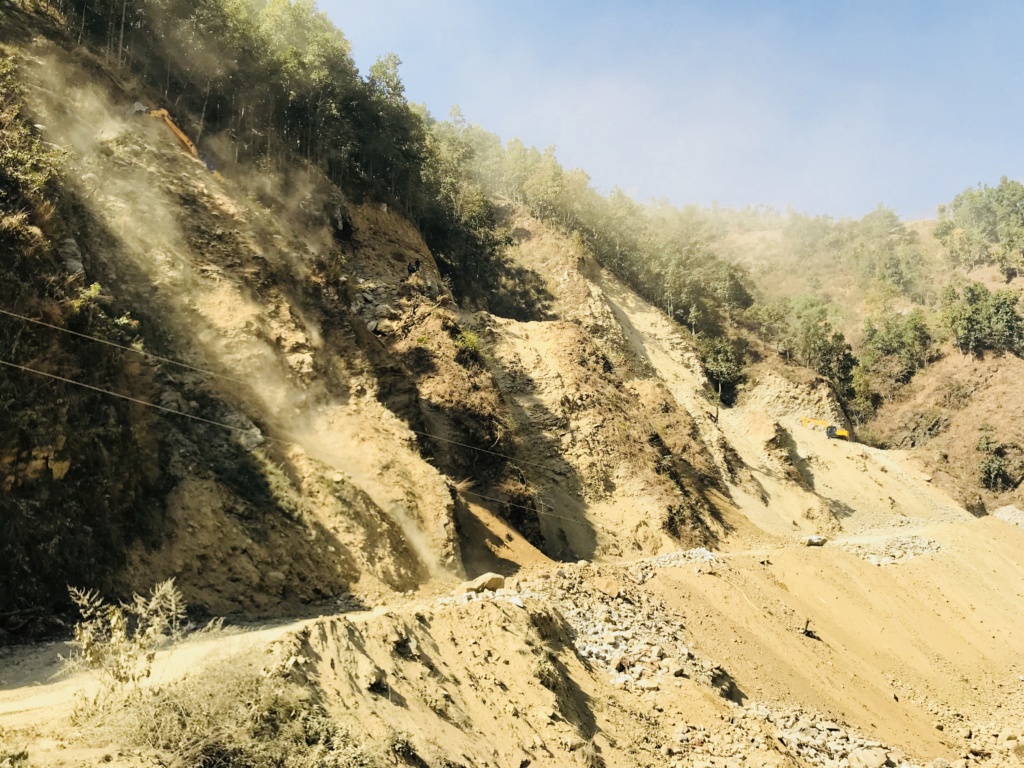
Read the final installment of the three-part series on our trip to Nepal, and catch up on part one here. Follow us on Facebook and Twitter for real-time updates on newly published blogs.
